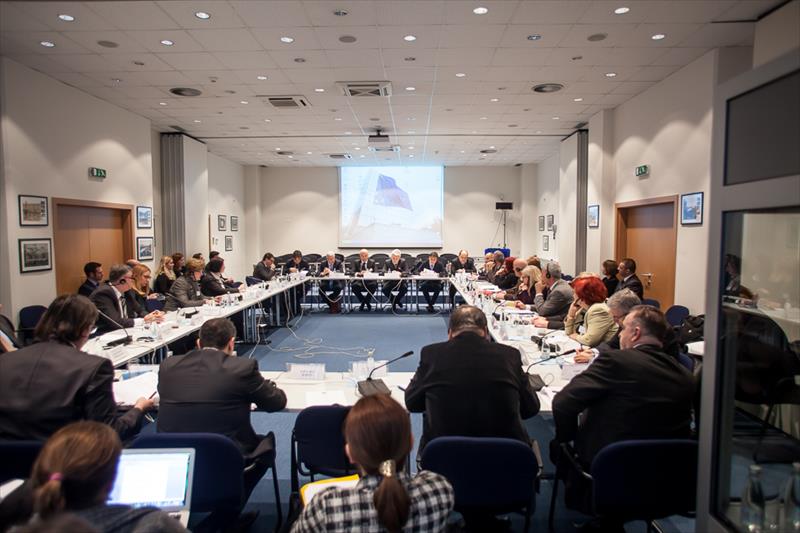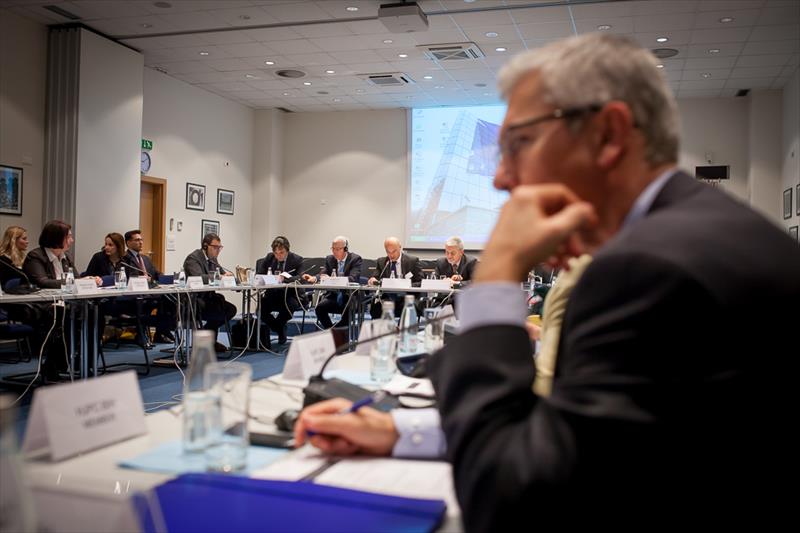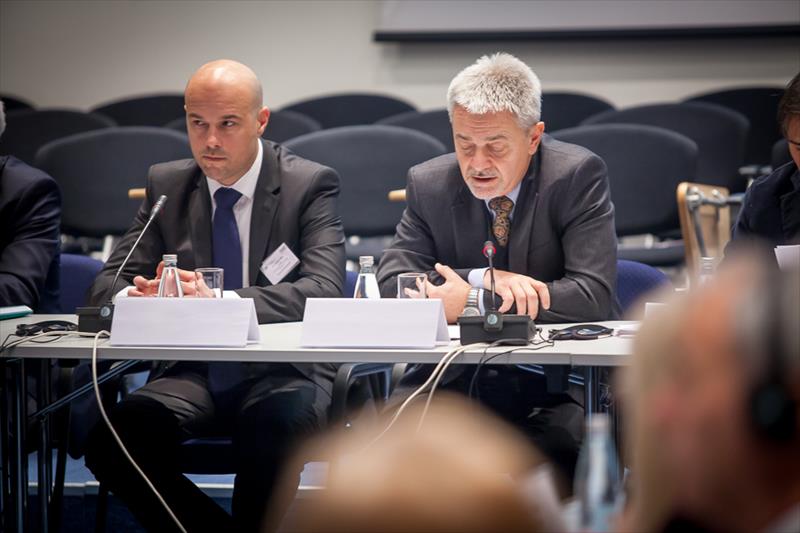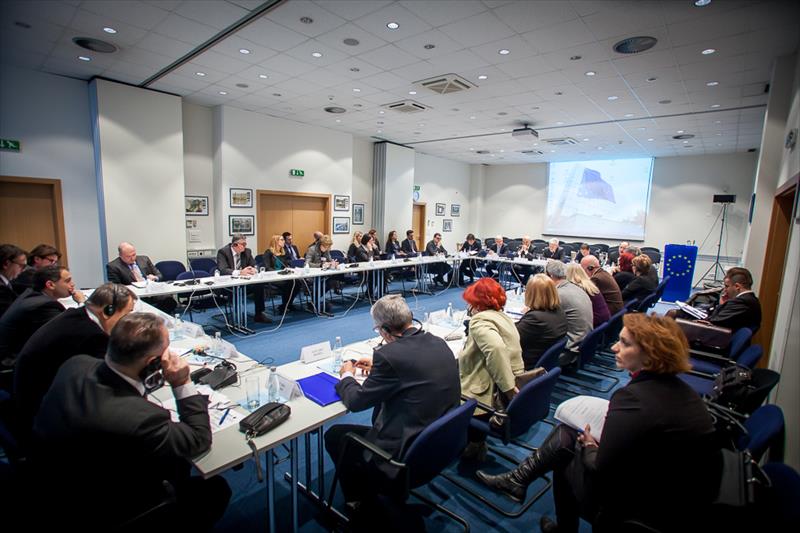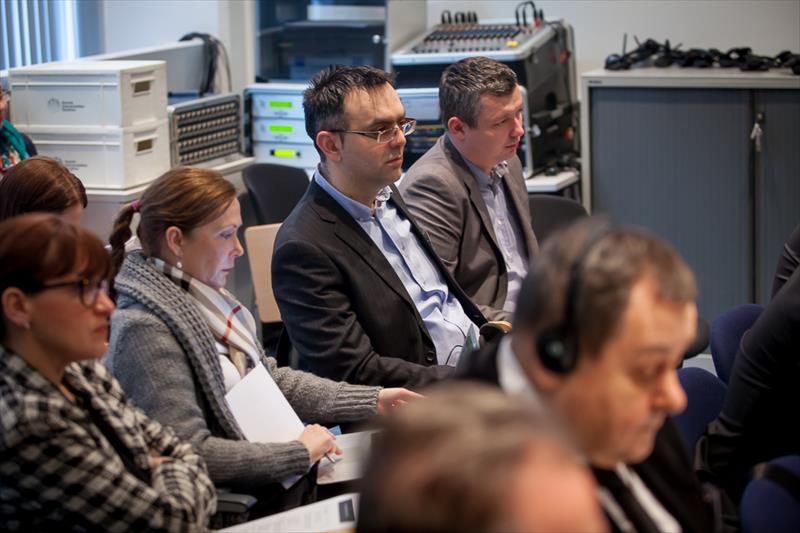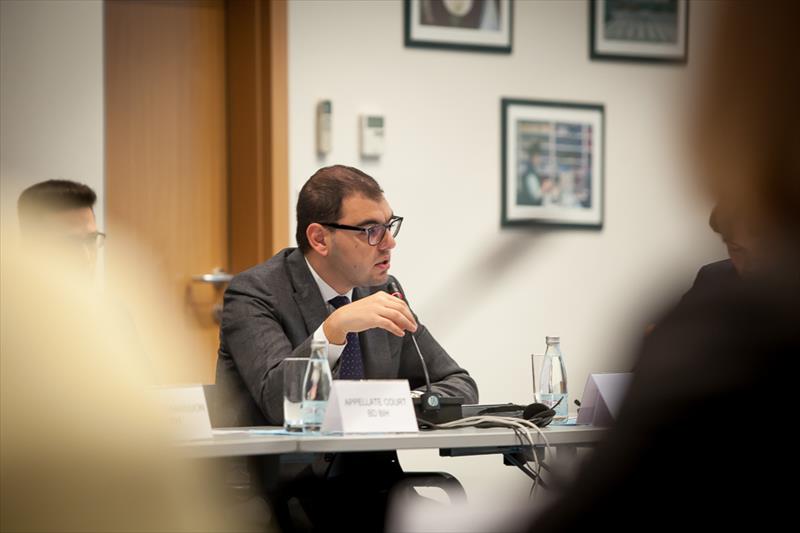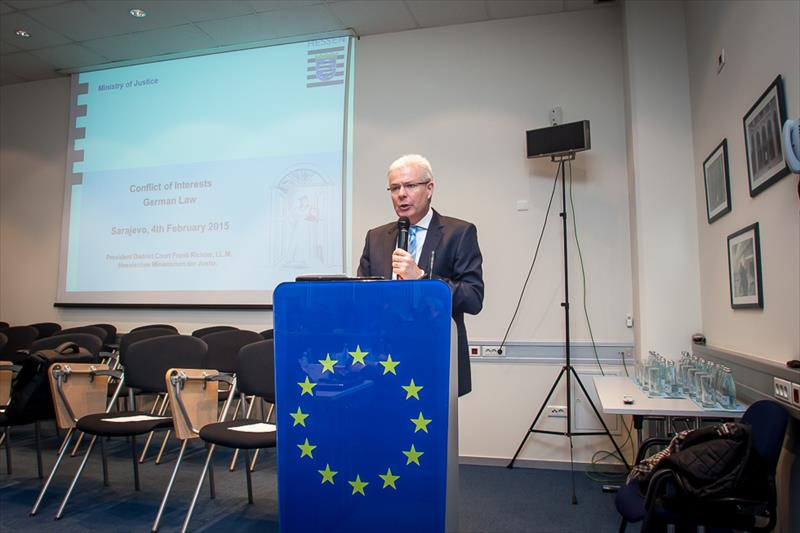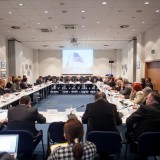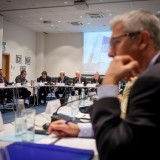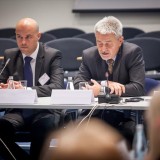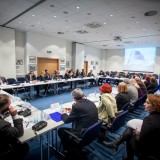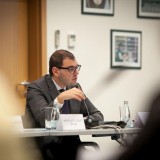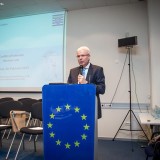A two-day seminar on ‘Conflict of Interest in the Judiciary in Bosnia and Herzegovina’ organised by the European Commission and sponsored through the Technical Assistance and Information Exchange instrument (TAIEX) opened in Sarajevo today. This exercise is convened in the framework of the EU-BiH Structured Dialogue on Justice, with the aim to discuss relevant practices and European standards in the prevention and fight against conflict of interest in the judiciary. The kick-off seminar, which was also open to the participation of relevant civil society organisations, took place this morning at the EU Delegation in Sarajevo.
Charge d’Affaires a.i., Dr Renzo Daviddi, welcomed representatives from institutions throughout the BiH judiciary, emphasising that effective prevention of conflict of interest is one of the crucial elements towards achieving the EU standard of an accountable judiciary in BiH.
“Prevention of conflict of interest helps in ensuring integrity and public trust in judicial institutions which, at the eve of the anniversary of citizens’ protests, remains to be consolidated. It also helps in preventing situations where conflicting private interest may impair the independence and impartiality of the decision makers and in turn damage the credibility of the process whose final outcome, regardless of its substance, would be perceived as unjust,” Dr Daviddi said.
A particular focus was attached to the regulation of conflict of interest in the High Judicial and Prosecutorial Council of Bosnia and Herzegovina. In this specific regard, Dr Daviddi stressed that, “the level of integrity and accountability of judicial councils and of the judiciary as a whole is one of the benchmarks that are closely assessed by the European Union and will not be derogated from the practice established during previous enlargements of the Union.”
Participants of the seminar are sharing experience with experts from four EU member states (Belgium, Croatia, Germany and Italy), who informed their BiH counterparts that public trust in judiciary should be taken into account as a relevant parameter when determining rules to prevent conflict of interest and the specific intensity of such rules.
The expert team will continue to engage with the representatives from judicial institutions throughout BiH today and tomorrow. The exercise will be closed tomorrow, with a wrap up seminar, following which the European Commission services will issue summary conclusions and recommendations.

